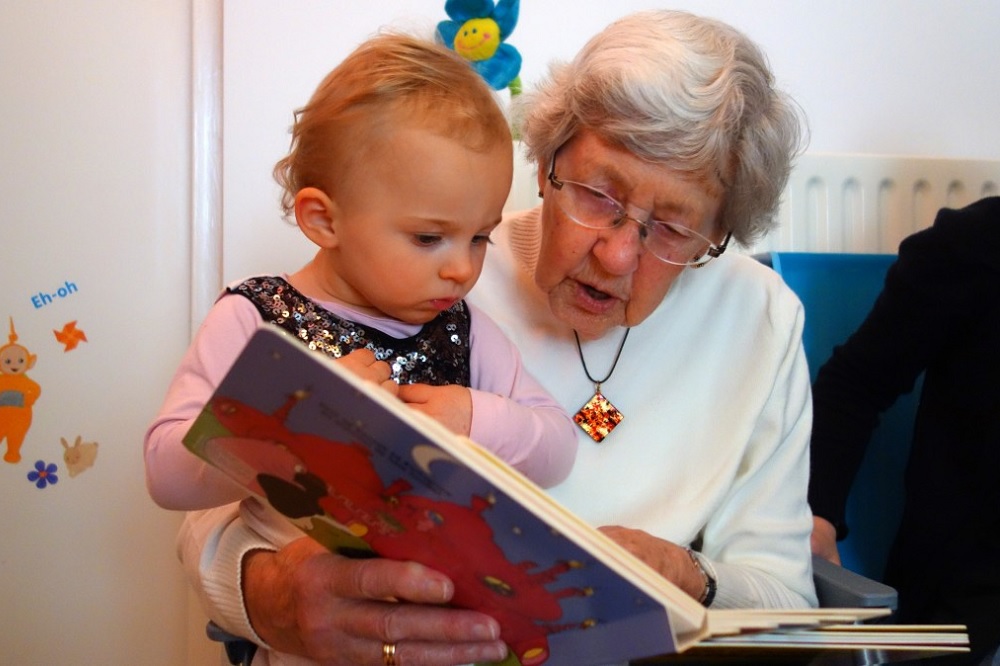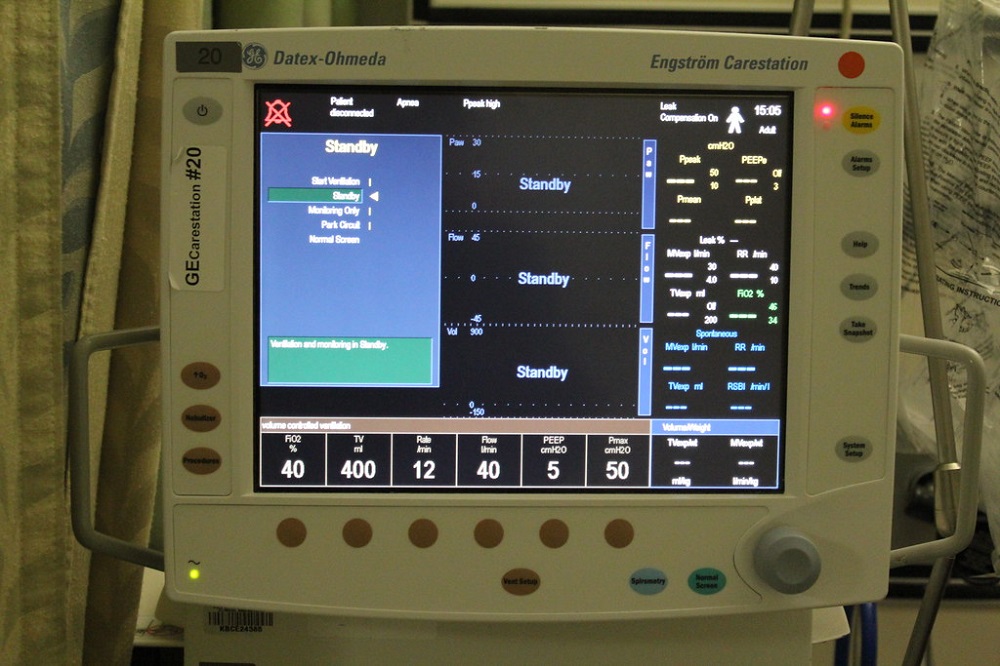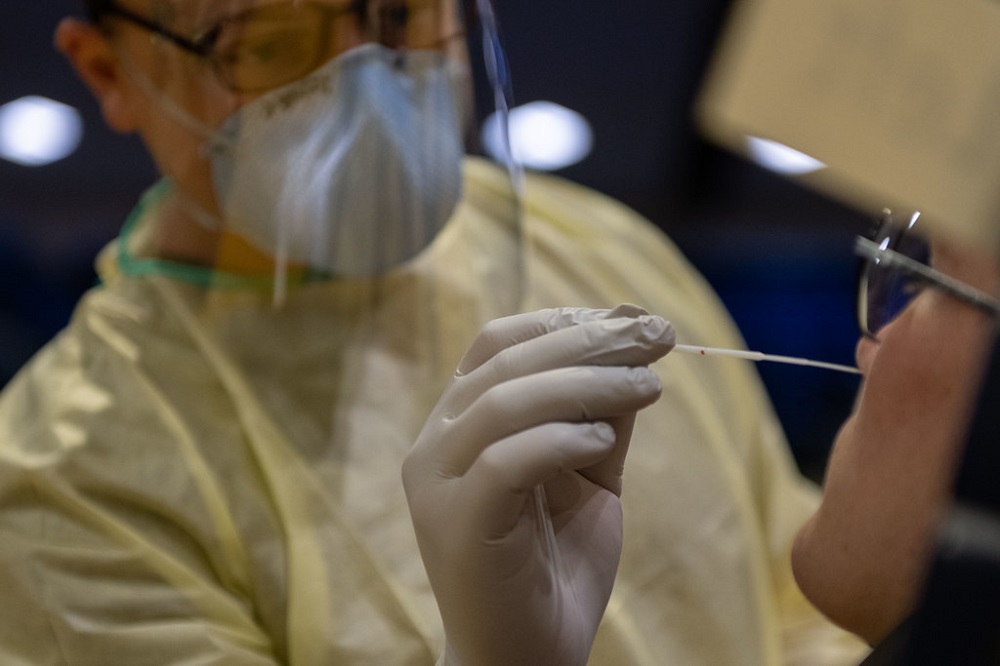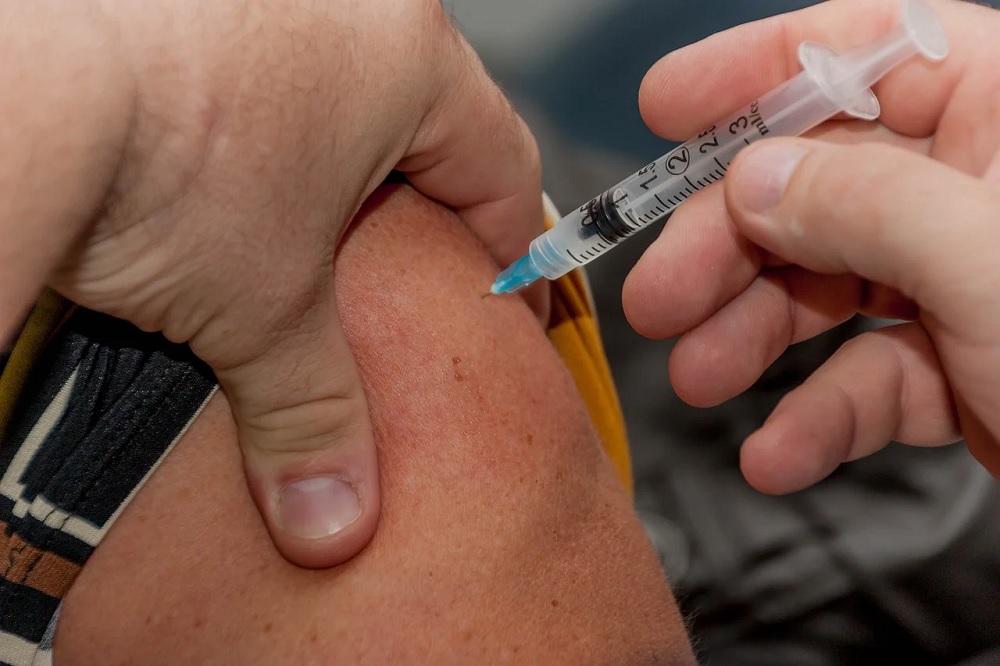News in brief: Care home residents must self-isolate if they visit family over Christmas

The government is advising care home residents they will be required to self-isolate for 14 days if they chose to spend time away from the home during the Christmas holidays.
In a written statement, Julie Morgan MS, Deputy Minister for Health and Social Services, also says any decision to visit outside the care home should be made after discussions involving the care home provider, the resident and their family.
“The need to balance people’s rights and support their well-being with the need to protect people living in care homes from the risk of infection remains very challenging,” she writes.
“The public health advice is that indoor visits and overnight stays by care home residents with their families over Christmas, will present a risk of infection with coronavirus to both them and the wider care home residents.
“These risks should be considered and evaluated by the person, their family and the care home provider when considering visits out of the care home. Care home providers and families can take steps to mitigate the risks of a visit out of the care home, but it cannot be removed completely.
“Any decision to spend time away from the care home during the five-day Christmas period when the UK-wide common arrangements are in force – between 23 and 27 December – should be informed by a dynamic risk assessment, which upholds rights and choice and involves the care home provider, the care home resident and their family.
“Unfortunately, in the current circumstances, adults will need to self-isolate for 14 days on their return to the care home. I appreciate that this will be disappointing.
The Welsh Government will be publishing FAQs to support families of people in care homes. These will be available at: https://gov.wales/visits-care-homes-guidance-providers.
Public Health Wales has confirmed 38 further deaths due to COVID-19 and 2,801 new cases of the virus in today’s update.
The newly reported deaths take the total in Wales since the start of the pandemic in March to 3,011.
The daily figures released by Public Health Wales only include the deaths of a hospital patients or care home resident where COVID-19 has been confirmed with a positive laboratory test and the clinician suspects this was a causative factor in the death.
According to the Office for National Statistics, the total number of deaths in Wales involving COVID-19 from the start of the pandemic, including those registered by 12 December is 3,983.
Deaths counted by the ONS are when COVID-19 is mentioned by doctors on the death certificate and which occur in all settings – including hospitals, care homes, hospices and people’s homes.
14 of the deaths reported today were In the Cwm Taf Morgannwg health board area. There were also nine deaths in Aneurin Bevan, five in both the Betsi Cadwaladr area and Swansea Bay, three in Hywel Dda area and two in Cardiff and Vale
Rhondda Cynon Taf (297) recorded most new cases since yesterday, followed by Swansea( 283) and Cardiff (269).
The seven-day rolling Covid case rate in in Merthyr Tydfil is the highest in Wales at 1,128.9 per 100,000 people, up from 822.2 on Monday.
Bridgend has the highest positive test proportion over the last seven days at 28.1% per 100,000 tests.

Medic warns of ITU pressures in Cwm Taf Morgannwg health board
Medical director Dr Nick Lyons says there are now close to 500 coronavirus patients requiring hospital treatment across Cwm Taf Morgannwg University Health Board’s three hospitals in Llantrisant, Merthyr and Bridgend.
Yesterday the health board announced it was suspending non-essential services to help deal with the sharp increase in Covid hospitalisations.
The board, which covers Bridgend, Rhondda Cynon Taf and Merthyr Tydfil County Borough Councils, has recorded a 22% rise in coronavirus patients over the last seven days and 36% of all its inpatients have the virus.
Speaking on BBC Radio’s Today programme, Dr Lyons said: “Our ITUs are basically full with Covid patients.
“All but the most urgent outpatient clinics and all but the most urgent cancer surgery and clinically urgent surgery we’ve had to cease. Our field hospital is roughly at half its total capacity.”
According to today’s figures from Public Health Wales a further 646 people tested positive for the virus in the last 24 hours in the Cwm Taf Morgannwg area.

Minister confirms expansion of Covid testing facilities
Health Minister Vaughan Gething has confirmed the opening of 15 new walk-through Covid test sites situated across Wales before Christmas, with 12 more set to launch early next year.
Nine additional Mobile Testing Units are also being added to the 19 units already operational, to ensure that each local health board has one mobile unit that can be operated in each local authority area.
In a statement confirming the expansion of the testing infrastructure, Mr Gething said: “This investment will provide much needed capacity and resilience for us during winter and for our future needs.
“We want to ensure that testing is regularly and frequently available and we continue to work with LHBs (local health boards) local authorities and third sector partners to develop effective outreach with communities across Wales. This includes a targeted focus within areas of higher deprivation, within our more rural or isolated communities and with protected characteristic groups.
“In addition to increasing our testing infrastructure for people with symptoms we are also developing our approach and support for people without symptoms to access lateral flow tests (LFT) that detect the presence of the Covid-19 viral antigen from a swab sample and produce results within 20 to 30 minutes. This includes establishing Asymptomatic Testing Sites in higher education, schools and for community testing in Merthyr Tydfil and Lower Cynon.
“We will continue to strengthen and develop our testing approach to ensure we have sustainable testing sites that can be flexible and responsive to local needs and can adapt to emergent evidence and the development of new technologies.”

Armed forces to aid vaccine rollout
Military medics are set to be deployed across Wales to help with the rollout of a coronavirus vaccine.
The move comes after UK ministers approved a Military Aid request which will run between 4 January to 28 February and will see members of the armed forces delivering the vaccine, setting up equipment and carrying out other crucial functions.
Over 90 armed forces personnel will be involved in the deployment.
Military personnel previously helped with the mass testing programme set up in Merthyr Tydfil last month.

Investigation into care of Cancer patient sparks wider probe
Jez Hemming, local democracy reporter
An ombudsman investigation into delays in care for a prostate cancer patient has sparked a wider probe.
Public Service Ombudsman for Wales Nick Bennett is now investigating a further 16 cases at Betsi Cadwaladr University Health Board where patients potentially waited in excess of a 62-day target for treatment.
The case which sparked the wider probe centered on a patient known as Mr Y who was first referred for treatment in May 2019 and should have received definitive care for his cancer within 62 days.
He was told on August 13 that year the waiting time for urgent treatment was three months, which would have meant him being 106 days over the target date.
The report said: “Considering the professional advice that early radical treatment was essential in high-risk disease, a three month wait for definitive treatment was unacceptable regardless of the RTT Rules. This was a service failure.”
Fearing a potential impact on his health Mr Y sought care privately and the Ombudsman ruled he should receive a redress payment of £8,171, the cost of his therapy, and an apology from the health board.
Accepting the Ombudsman’s decision Gill Harris, acting chief executive of BCUHB, said: “We offer our sincere apologies to Mr Y for the delay in offering treatment and the additional distress this caused.
“We have considered the Ombudsman’s report very carefully and we are determined to translate the very significant points of learning identified into service improvements which ensure that people receive better, safer and more timely care.”
On top of an apology and reimbursing Mr Y the board also agreed to set up a task and finish group to review the urology service, particularly in relation to high-risk cancer patients.
However, that was not the end of the matter as this case became the starting point for a wider investigation.
Section 44 of the Public Services Ombudsman (Wales) Act 2019 now allows the Ombudsman to conduct an “own initiative” investigation if he believes there are systemic issues related to a complaint – or if he receives a complaint about service issues from a whistleblower.
Speaking to the Local Democracy Reporting Service (LDRS) he said: “I have now commenced an ‘own initiative’ investigation into the matter as I believe there are many other patients who were potentially left waiting too long for treatment.
“Mr Y was left with a stark choice; wait for treatment not knowing what impact this would have on his prognosis and future treatment, or pay for private treatment to mitigate the uncertainty. This is clearly unacceptable.
“This time we had a look and realised there could be another 16 in the same boat as Mr Y.
“We don’t have to just draw the line now, publish the report and cross our fingers that something isn’t a systemic issue, we can have a look.”
In the past the Ombudsman could only look into the complaint presented and wait for others to come forward, even if he was aware there may be a systemic issue that potentially affected others. This new legislation gives him the power to go further.
Potentially it’s a game changer for public bodies who may be sitting on deeper issues – as the Ombudsman can even initiate consultations on matters without a complaint.
Mr Bennett added: “We don’t just have to be reactive. We’ve got the powers to look at the systemic aspect.
“We can say ‘Hold on, who else in the urology department in North Wales might have been in a similar position?’
“Who else has had a diagnosis of prostate cancer and hasn’t had their needs met within this target?”
Geoff Ryall-Harvey, chief officer of patient advocates North Wales Community Health Council said his organisation had been “concerned for a long time” about services provided to men with prostate cancer in North Wales.
He said: “The CHC successfully campaigned with Prostate UK and Stuart Davies to bring high resolution mpMRI scanning to North Wales – referred to in the Ombudsman’s report.
“Prior to this, many men with suspected prostate cancer had private scans and the CHC helped them to obtain refunds for these costs.
“North Wales CHC is grateful to Patient Y for the service he has done for others waiting for cancer treatment. No one should have to wait for urgent, lifesaving cancer surgery.”
Mr Bennett is the only Ombudsman in Great Britain who currently has the wider investigatory powers.
It was sponsored by North Wales AM Llyr Gruffydd, who raised the issue at committee stage in the Senedd.
Mr Bennett, who is originally from Anglesey, said: “There are real reasons to have these powers. With this case we can go further and see if there are any broader systemic failings for other patients in North Wales.
“I want everyone to know about our office and to know we are here for them if they feel they’ve had a serious service failing.”

Support our Nation today
For the price of a cup of coffee a month you can help us create an independent, not-for-profit, national news service for the people of Wales, by the people of Wales.




